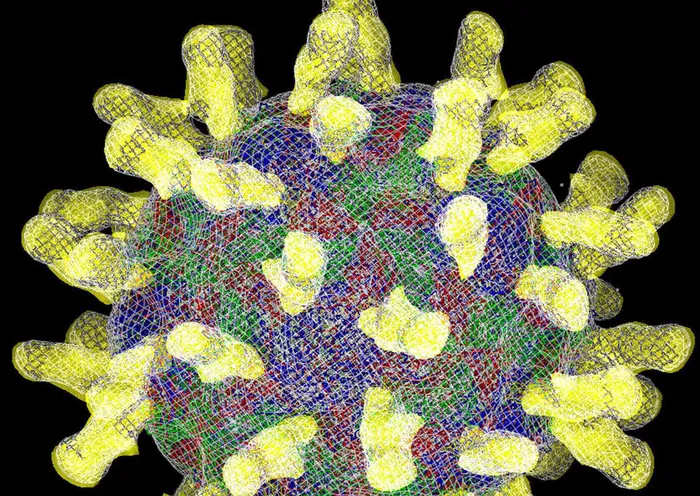
(File photo) A computer simulated model of the common cold virus rhinovirus 16. Picture: Reuters
Moscow - Covid-19 will weaken over time and eventually become just like the other coronaviruses that cause the common cold, Sarah Gilbert, Professorship of Vaccinology behind the University of Oxford's vaccine, said.
"We already live with four different human coronaviruses that we don’t really ever think about very much and eventually Sars-CoV-2 will become one of those. It’s just a question of how long it’s going to take to get there and what measures we’re going to have to take to manage it in the meantime," Gilbert told a Royal Society of Medicine webinar, as quoted by The Times.
Gilbert said that the fears of a more deadly coronavirus variant are unsubstantiated, explaining that "viruses become less virulent as they circulate more easily and there is no reason to think we will have a more virulent version of Sars-CoV-2."
The professor said that it is important to start working on the prevention of further pandemics right now, noting that "by spending a small amount of investment now potentially means that we don't have to have the massive costs of a pandemic at a later stage."
The Oxford vaccine, developed in cooperation with with US-Swedish pharmaceutical company AstraZeneca, was approved by the World Health Organization for emergency use in February.
As far as the origins of the virus goes, scientists have discovered another clue with bats living in caves in Laos found to be carrying a similar pathogen that experts suggest could potentially infect humans directly, AFP reported.
Some experts say it is animal-driven but others have pointed to the possibility the pathogen leaked from a lab.
Researchers from France's Pasteur Institute and the National University of Laos said their findings showed that viruses genetically close to the SARS-CoV-2 virus "exist in nature" among bat species in the limestone caves of northern Laos, which neighbours China.
Related video:
Related Topics: